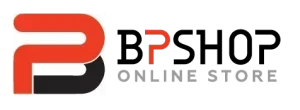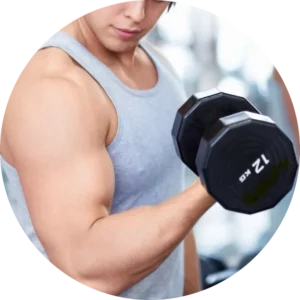Russian Sports Nutrition: Fueling Performance and Enhancing Athleticism
In recent years, the field of sports nutrition has gained significant attention for its crucial role in optimizing athletic performance. Athletes, both professional and recreational, are increasingly recognizing the importance of a well-balanced diet and targeted supplementation to achieve their fitness goals. Among the various countries that have made significant contributions to this field, Russia stands out as a powerhouse in sports nutrition research and innovation.
Russia, renowned for its rich sporting heritage, has a long-standing tradition of nurturing world-class athletes across a wide range of disciplines. Recognizing the vital role that nutrition plays in athletic success, Russian scientists and sports nutrition experts have dedicated substantial resources to understanding the specific dietary needs of athletes and developing cutting-edge nutritional strategies.
One of the key areas of focus in Russian sports nutrition is the optimization of macronutrient intake. Proteins, carbohydrates, and fats are the building blocks of an athlete’s diet, and their precise balance is crucial for optimal performance. Russian researchers have conducted extensive studies to determine the ideal ratios of these macronutrients for different sports and individual athletes. This research has led to the development of tailored nutritional plans that enhance muscle growth, improve endurance, and support recovery.
Additionally, Russian sports nutrition places great emphasis on the quality and timing of nutrient intake. Athletes are encouraged to consume whole, nutrient-dense foods to provide a wide range of essential vitamins, minerals, and antioxidants. Furthermore, the timing of nutrient intake is carefully considered to maximize energy availability during training and competition, as well as to support post-exercise recovery.
Another notable aspect of Russian sports nutrition is the utilization of specific supplements. Russian scientists have extensively explored the benefits of various supplements, such as creatine, beta-alanine, and branched-chain amino acids (BCAAs), in enhancing athletic performance. These supplements, when used in conjunction with a well-designed nutrition plan, have shown promising results in improving strength, power, and overall athletic performance.
Moreover, Russian sports nutrition research extends beyond the realm of macronutrients and supplements. Scientists have delved into the impact of micronutrients, such as vitamins and minerals, on athletic performance. Understanding the role of these micronutrients in energy metabolism, immune function, and tissue repair has allowed for the development of targeted supplementation strategies to address specific deficiencies and optimize performance.
In conclusion, Russian sports nutrition has emerged as a leading force in the field, characterized by meticulous research, innovative approaches, and a focus on individualized dietary strategies. The knowledge and expertise of Russian scientists and sports nutrition experts have paved the way for athletes worldwide to achieve their full potential. By harnessing the power of tailored macronutrient ratios, optimal nutrient timing, and targeted supplementation, athletes can unlock new levels of performance and push the boundaries of human achievement.
The Evolution of Russian Sports Nutrition: A Scientific Breakthrough
Understanding Nutritional Needs for Optimal Performance
Russian sports nutrition has made significant strides in understanding the unique nutritional needs of athletes across various sports. The emphasis is placed on tailoring dietary plans to individual athletes, taking into account their specific goals, training regimens, and physiological requirements. This personalized approach allows for the optimization of macronutrient intake, ensuring that athletes consume the right balance of proteins, carbohydrates, and fats to support their performance goals.
Macronutrient Ratios: Fueling Performance
Russian sports nutrition research has shed light on the importance of macronutrient ratios in maximizing athletic performance. While the specific ratios may vary depending on the sport and individual athlete, a general guideline is to consume a higher proportion of carbohydrates to fuel energy demands during training and competition. Proteins play a crucial role in muscle repair and growth, while fats provide essential fatty acids and aid in hormone production. By fine-tuning the macronutrient ratios, Russian sports nutritionists have helped athletes achieve optimal performance and recovery.
The Role of Nutrient Timing
In addition to macronutrient ratios, Russian sports nutrition emphasizes the timing of nutrient intake. Pre- and post-workout nutrition is carefully planned to ensure that athletes have sufficient energy stores and promote muscle recovery. Consuming a balanced meal or snack containing carbohydrates and proteins before exercise helps provide sustained energy, while post-workout nutrition focuses on replenishing glycogen stores and promoting muscle repair. By strategically timing nutrient intake, Russian athletes can maximize their training adaptations and optimize performance.
The Power of Supplements
Supplementation is another key aspect of Russian sports nutrition. Extensive research has been conducted on various supplements to enhance athletic performance. Creatine, a popular supplement, has been shown to improve strength and power output, particularly in high-intensity activities. Beta-alanine, on the other hand, can increase muscle endurance by buffering lactic acid buildup. Branched-chain amino acids (BCAAs) are often used to support muscle recovery and reduce exercise-induced muscle damage. Russian athletes, guided by sports nutrition experts, incorporate these supplements into their training regimens to gain a competitive edge.
Micronutrients: The Unsung Heroes
While macronutrients and supplements often steal the spotlight, Russian sports nutrition recognizes the critical role of micronutrients in athletic performance. Vitamins and minerals are essential for energy metabolism, immune function, and tissue repair. Deficiencies in certain micronutrients can impair performance and hinder recovery. Russian sports nutritionists conduct thorough assessments to identify any deficiencies and develop targeted supplementation strategies to address them. By ensuring athletes have optimal levels of micronutrients, performance can be enhanced, and overall health can be maintained.
Conclusions: Unleashing Athletic Potential through Russian Sports Nutrition
Russian sports nutrition has revolutionized the way athletes approach their dietary strategies. Through meticulous research, personalized approaches, and a focus on optimal macronutrient ratios, nutrient timing, and supplementation, Russian athletes have been able to unlock their full potential. By understanding the specific nutritional needs of athletes and tailoring dietary plans accordingly, Russian sports nutrition has become a driving force in the field, setting new standards for athletic performance and pushing the boundaries of human achievement.
Practical Recommendations for Maximizing Athletic Performance
1. Tailor Your Macronutrient Intake
Individualize your macronutrient ratios based on your sport, training intensity, and body composition goals. Consult with a sports nutritionist to determine the optimal balance of proteins, carbohydrates, and fats to support your performance and recovery needs.
2. Optimize Nutrient Timing
Pay attention to the timing of your meals and snacks, especially around training sessions. Consume a balanced meal or snack containing carbohydrates and proteins before exercise to fuel your workouts. Afterward, prioritize post-workout nutrition to replenish glycogen stores and promote muscle repair.
3. Incorporate Supplements Strategically
Consider incorporating supplements that have been scientifically proven to enhance athletic performance. Creatine can improve strength and power output, beta-alanine can increase muscle endurance, and BCAAs can aid in muscle recovery. However, consult with a sports nutrition expert to determine the appropriate dosage and timing for your specific needs.
4. Focus on Micronutrient Optimization
Ensure you are meeting your micronutrient needs through a well-balanced diet rich in fruits, vegetables, whole grains, lean proteins, and healthy fats. Consider getting regular blood tests to identify any potential micronutrient deficiencies and work with a sports nutritionist to develop a targeted supplementation plan if necessary.
5. Stay Hydrated
Hydration is crucial for optimal athletic performance. Drink water regularly throughout the day and increase your fluid intake during training and competition. Monitor your urine color to ensure you are adequately hydrated, aiming for a pale yellow color.
6. Prioritize Rest and Recovery
Recognize the importance of rest and recovery in your training program. Ensure you are getting enough sleep to support muscle repair and growth. Incorporate active recovery strategies such as stretching, foam rolling, and light aerobic exercise to aid in muscle recovery and reduce the risk of injuries.
7. Seek Professional Guidance
Consult with a qualified sports nutritionist or dietitian who specializes in working with athletes. They can provide personalized guidance based on your specific needs, goals, and training demands. They will help you optimize your nutrition plan and make adjustments as necessary to support your performance journey.
By implementing these practical recommendations, athletes can harness the power of Russian sports nutrition to fuel their performance, enhance their athleticism, and reach new levels of success in their respective sports. Remember, every athlete is unique, and it’s essential to customize your approach to nutrition based on your individual needs and goals.





